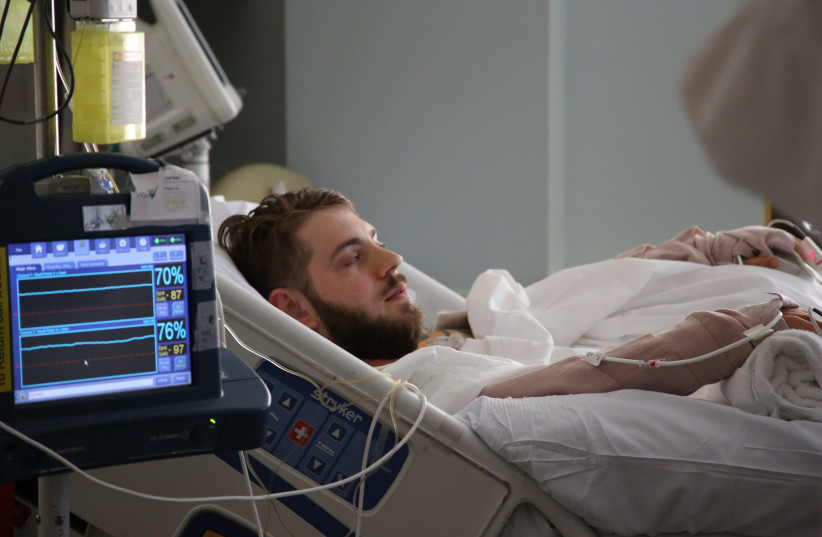Israeli surgeon hopes to bring movement back to amputees from Oct. 7 massacre
For ten years, nearly 120 amputees around the world have been given new lives after undergoing arm or leg transplants from deceased donors. They can move their new limb and feel heat and temperature. This highly complex surgical procedure requires dozens of coordination and extensive preparations. But now, an Israeli orthopedist who has participated in such transplants and personally transplanted limbs disclosed in an interview with Maariv that this surgery is now also available in Israel.
In 2010, American Marine Sergeant John Peck lost all his limbs in Afghanistan. Six years later, he successfully underwent arm transplantation surgery. After the initial months of rehabilitation at Brigham and Women’s Hospital in Boston, Peck demonstrated the movement of his new arms.
The complex surgery, which lasted about 12 hours and involved orthopedists, vascular surgeons, neurosurgeons, transplant nurses, and technicians, connected the blood vessels, nerve fibers, muscles, bone tissues, and skin from the donated limb to Peck’s 31-year-old body. The next day, he woke up attached to someone else’s arms.
Peck was among the many success stories of limb transplants performed worldwide in recent years. Most of these transplants were of arms, and a leg transplant was performed in at least one case. The work on such a surgery is complicated: it requires many approvals, maximum tissue matching between the deceased donor and the recipient, matching the shape and length of the transplanted limb, and of course, the knowledge and experience of the transplant teams.

One of the few doctors in Israel who has participated in limb transplant surgery abroad is Dr. Zvika Steinberger, head of the Microsurgery Unit at Sheba Medical Center. Since October 7, Steinberger has treated severely injured patients with upper and lower limb injuries, some amputated and some saved from amputation. Over the years, he has operated on dozens of patients who underwent hand or leg amputation and, in some cases, reattached them with the help of operating room teams.
“Israel, unfortunately, is very experienced in treating limb amputees,” Steinberger said in an interview. “We treat dozens of amputation cases a year here, we know how to reattach a hand, arm, and leg that has been partially or completely severed. These surgeries are very complex and take many hours, but we know how to do them and also have the experience. But this surgery is more complex, requiring coordination, finding the right donor, knowing exactly where to attach the limb to the donor and to cut in the right place at the right height, to connect the artery veins, tendons, bones, and muscles, so that the limb can perform both the rotational movements and the sensation. This requires great precision.”
But it’s not just the coordination and preparations for such a transplant surgery that are complex: the rehabilitation of the transplantees is also very long, and after many months of recovery, they have to take anti-rejection drugs for the rest of their lives. “Despite the many difficulties, if you ask me, it will be a tremendous achievement if we can bring these transplants here to Israel and a great joy for me as a surgeon to see a soldier who lost an arm or leg for the defense of the country, manage to move the limb again and to feel, something he could never do with a prosthesis. This is the least we can return to the lives of the brave soldiers who protected us and lost so much,” Steinberger concluded.
Dr. Tamar Ashkenazi, the director of the Israeli National Transplant Center at the Health Ministry, explained, “Consent to donate an internal organ is not the same as donating an external organ. Such a donation must reach agreements with the families of the deceased, public awareness, and increased awareness. It’s a process that will require a change in perception. However, any action that can save lives or significantly affect the quality of life of an injured person is certainly worthy of feasibility consideration in the country.”





Comments are closed.